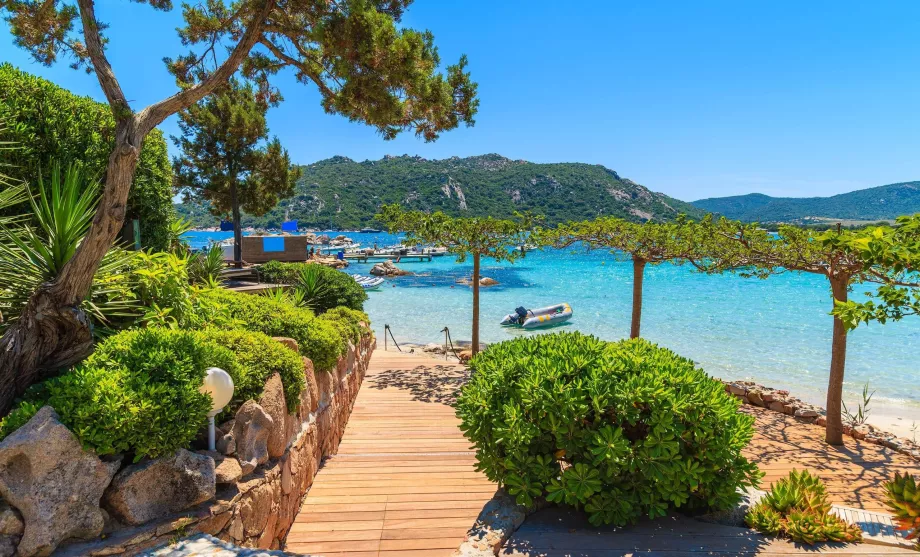Car rental in Corsica

Public transport in Corsica is one of the worst in Europe in terms of frequency and places served (see the Transport section), so hiring a car is practically the only way to explore Corsica.
Even in Corsica, the general guidelines for renting a car apply, and if you're new to this segment, check out our article How to Rent a Car Abroad for the First Time.
Where, when and how to book a car in Corsica
When it comes to booking a car at car rental companies, the earlier you make your reservation, the cheaper it will be. This is especially true in Corsica, where cars sell out quickly during the summer and supply often far outstrips demand.
You'll also notice a significant difference in prices when travelling in high season and low season, with car hire costing several times more in summer than in winter.
To book, we recommend using one of the comparison engines of all car rental companies, which will sort the results according to your chosen criteria:
Compare prices and book a car with booking.com
The best option is to rent a car directly at one of the four international airports. Check the current availability and prices of cars:
- Car rental at Bastia airport
- Car rental at Ajaccio airport
- Car rental at Calvi airport
- Car rental at Figari airport
Usually, the lowest prices are at Ajaccio and Bastia airports, where the competition is at its highest.
Car rental prices in Corsica
Car hire in Corsica is not that expensive compared to the prices of other activities. However, compared to other destinations in the Mediterranean, prices are high. The price depends on the length of the rental, the longer the longer, the cheaper the daily rental price will be. Examples of prices (the first amount is when booking about 5 months before the trip, the second amount when booking 1 month before the trip to illustrate the difference):
- 7-day rental in summer - small car from 12 000 CZK, larger car from 17 0 eur
- 4-day rental in summer - small car from 0 eur 0 eur , larger car from 10 0 eur
- 7-day rental in winter - small car from 0 eur 0 eur , larger car from 0 eur 183 eur
- 4-day rental in winter - small car from 0 eur 0 eur , larger car from 293 eur
Always read the detailed rental conditions and especially the insurance policy, which you can also find on Booking.com. Some rental companies include insurance in the final price, elsewhere you will have to pay extra, between 5 eur and 10 eur per day depending on the type of car and the length of the rental.
International driving licence and other documents
Corsica is part of the European Union, so there is no need to get an international driving licence before your trip. The car rental company must also accept your classic European driving licence.
Car rental companies usually require a credit card to rent a car, but will often lend you a debit card, but either on less favourable terms or with a very high deposit often exceeding 1 000 eur.
Petrol prices and parking
Petrol is expensive in Corsica and prices are above average compared to other places in Europe.
Prices range from 1,65 eur to 2 eur per litre.
Parking in Corsica can be quite challenging. The historic towns are mostly in hilly areas and there is not a lot of space. At well-known beaches, vacancies are often taken up by around 9am.
Parking lots at tourist attractions and famous beaches are usually charged, expect to pay around 5 eur to 10 eur per day or 2 eur per hour.
Traffic and traffic regulations
What to prepare for when travelling around the island by car?
Corsican roads
Just looking at a map will make it obvious that driving in Corsica is a challenge. Or fun, too. Depending on how much you like driving. Corsica is a very mountainous and rugged island, the towns are relatively small, so it's not worth investing in building motorways, tunnels and bridges.
The roads in Corsica are very winding indeed, often very narrow and steep. But the negatives of slow, concentration-demanding traffic are far outweighed by the positives of breathtaking views, which you'll encounter literally every few metres.
Drive cautiously, slowly, and don't be in a hurry. The locals are used to tourists, so any wandering and confusion often passes without comment.
In the summer season, especially in the second half of July and throughout August, expect very heavy traffic, which makes wandering the Corsican roads much longer.
The quality of the secondary roads leading to the most backwater mountain villages is often miserable, full of potholes and potholes, with 20 km/h being your normal cruising speed.
Traffic signs
Directional signs are clear and well maintained, but expect directional signs to be placed at minor turning points right at the junction, not before.
The directional signs are always bilingual: in French and in Corsican, but this is unlikely to confuse you as the names usually differ by only one or two letters.
Traffic regulations
The rules of the road don't vary much across Europe.
Beware that many municipalities limit the speed limit to 30 km/h and are consistently enforced by radar or often very unexpected speed bumps.
Any questions left?
If you have any questions or comments about the article...

